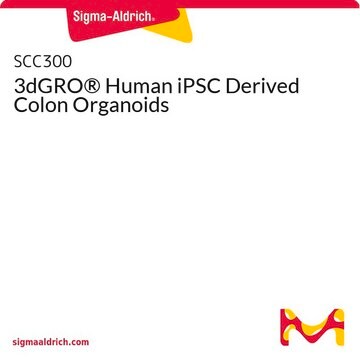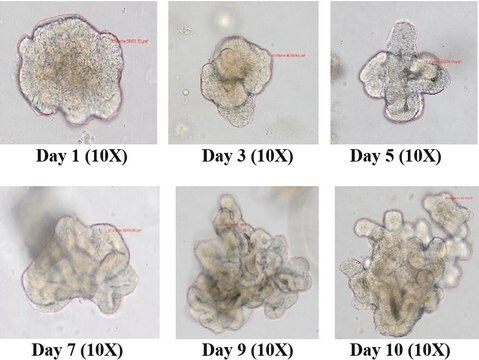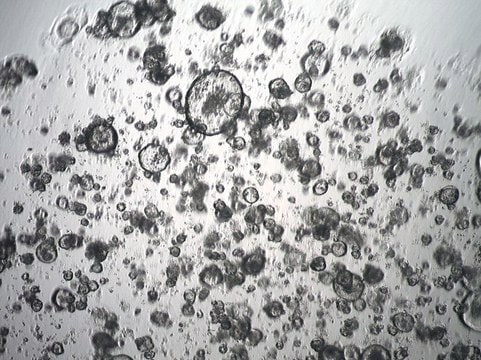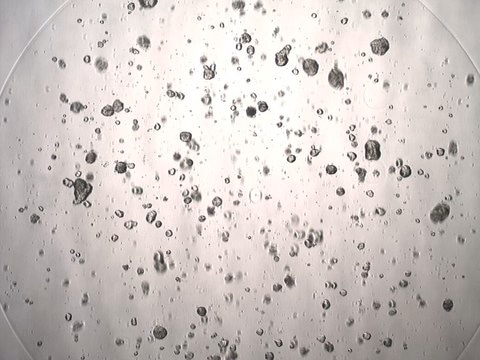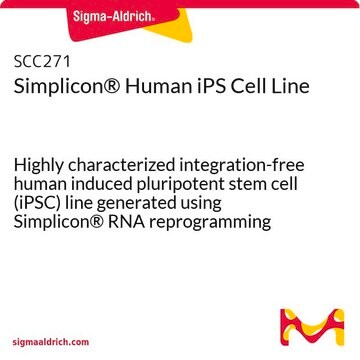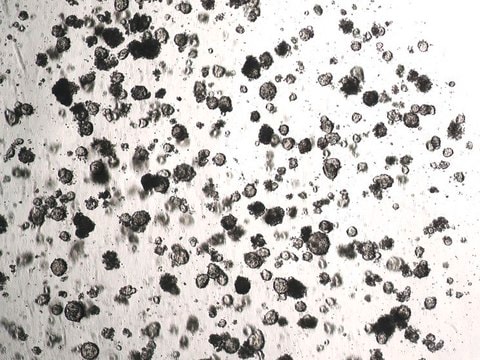SCC741
3dGRO® Colorectal Organoids (CSC.413)
Synonym(s):
Colorectal Cancer Organoid;Colon Tumor Organoid ;Colon Organoid;Human CRC Organoids
About This Item
Recommended Products
biological source
human
Quality Level
packaging
vial of ≥1500 organoids vials
manufacturer/tradename
Millipore
technique(s)
cell culture | mammalian: suitable
cell culture | stem cell: suitable
shipped in
liquid nitrogen
storage temp.
−196°C
General description
Application
- Viability: >1500 viable organoids/vial
- Organoid Growth: Pass
- Cells are tested negative for infectious diseases by a Human Essential CLEAR panel by Charles River Animal Diagnostic Services.
- Mycoplasma Contamination: Negative
- STR Profile: Pass
Features and Benefits
Storage and Stability
Legal Information
Disclaimer
Storage Class Code
12 - Non Combustible Liquids
WGK
WGK 2
Flash Point(F)
Not applicable
Flash Point(C)
Not applicable
Certificates of Analysis (COA)
Search for Certificates of Analysis (COA) by entering the products Lot/Batch Number. Lot and Batch Numbers can be found on a product’s label following the words ‘Lot’ or ‘Batch’.
Already Own This Product?
Find documentation for the products that you have recently purchased in the Document Library.
Protocols
Learn how to cultivate similar-sized iPSC-derived colon organoids using Millicell® Microwell plates and perform a forskolin-induced swelling assay.
Our team of scientists has experience in all areas of research including Life Science, Material Science, Chemical Synthesis, Chromatography, Analytical and many others.
Contact Technical Service